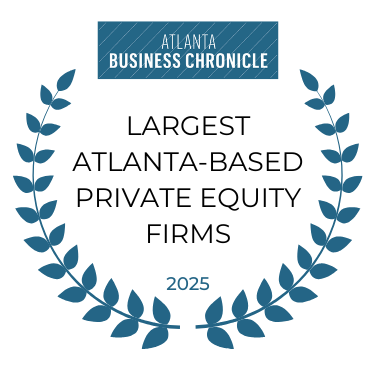Insights
NEWS FEATURES BY DATE
List of Services
-
2/4/2026 Artisan Custom Closets Acquires Queen City Closets, Expanding Presence into the Charlotte Market2/4/2026
-
11/2/2025 Connor Smith Joins Georgia Oak11/2/2025
-
10/31/2025 Septic Blue Acquires Advanced Septic10/31/2025
-
10/31/2025 Georgia Oak Invests in Atlanta Gear Works10/31/2025
-
9/10/2025 Septic Blue Acquires A-1 Septic Services9/10/2025
-
8/14/2025 T Management Acquires Life Point Dental Group8/14/2025
-
3/31/2025 Artisan Custom Closets Acquires Carolina Closets Plus3/31/2025
-
10/25/2024 Georgia Oak Invests in T Management10/25/2024
-
10/14/2024 Georgia Oak Promotes Corey Clemons to Vice President10/14/2024
-
5/30/2024 Growth Expert Jeff Tankersley Joins Septic Blue as CEO5/30/2024
-
4/22/2024 Artisan Custom Closets Expands Reach with Acquisition of Chattanooga Closet Company4/22/2024
-
1/11/2024 Georgia Oak Sponsors M&A South1/11/2024
-
11/29/2023 David Walker Joins Georgia Oak11/29/2023
-
11/15/2023 Georgia Oak Partners Announces Strategic Acquisition of Septic Blue11/15/2023
-
10/4/2023 Aditi Further Expands its Technology Solution Services by Acquiring Resolvit10/4/2023
-
9/21/2023 Atlanta Braves legend Dale Murphy joins Georgia Oak Partners as Managing Director9/21/2023
-
7/11/2023 Corey Clemons Joins Georgia Oak7/11/2023
-
6/5/2023 Artisan Custom Closets Acquires Spacemakers and Carolina Closets6/5/2023
-
5/22/2023 Home Improvement Expert Lindsay Tillie Joins Artisan Custom Closets as CEO5/22/2023
-
1/30/2023 Stacy Sutton Joins Georgia Oak1/30/2023
-
12/22/2022 Georgia Oak Partners Invests in Artisan Custom Closets12/22/2022
-
12/6/2022 Georgia Oak Partners Adds Emerald Transportation Solutions to its Portfolio12/6/2022
-
1/6/2022 Lars Heck Joins Georgia Oak Partners1/6/2022
-
3/18/2021 GA Governor Kemp Announces Sailfish Expansion3/18/2021
-
3/16/2021 Georgia Oak Partners Invests in Aditi Consulting3/16/2021
-
12/22/2020 Georgia Oak Partners: Our History, Your Future12/22/2020
-
2/19/2019 Forbes Features Farm Burger Invasive Species Sandwich Launch2/19/2019
-
12/11/2018 Former Back Yard Burgers CEO Joins Your Pie as COO12/11/2018
-
10/11/2018 Spectrum Staffing Named Finalist for Pinnacle Small Business Awards10/11/2018
-
9/19/2018 Farm Burger Honored on Good Good 100 Restaurants™ List9/19/2018
-
9/18/2018 Georgia Oak Partners Founder Named to 2018 40 Under Forty by Atlanta Business Chronicle9/18/2018
-
8/19/2018 Georgia Oak Partners Founder Named to 2018 40 Under Forty by Atlanta Business Chronicle8/19/2018
-
7/25/2018 Your Pie Celebrates 10 Years with Franchise Fest, Contest7/25/2018
-
7/13/2018 Your Pie Named to Restaurant Business "Future 50" List7/13/2018
-
6/29/2018 Georgia Oak Partners Founder Named to 2018 Emerging Leaders by The M&A Advisor6/29/2018
-
5/16/2018 Farm Burger Named a "Sizzling Better-Burger Concept to Watch" by QSR Magazine5/16/2018
-
4/17/2018 QSR Magazine: Your Pie Opens 5 Locations in First Quarter4/17/2018
-
3/30/2018 Spectrum Staffing Wins Movers & Makers MVP Award3/30/2018
-
2/12/2018 Farm Burger Named to QSR Magazine's 40 Under 40 Units List2/12/2018
Georgia & National Labor Market Trends: A Look at Six Key Industries
GEORGIA LABOR TRENDS IN THE MIDST OF A PANDEMIC
Overall, the June Jobs Report from the U.S. Bureau of Labor Statistics reflected the expected chaos across the employment market, along with clear evidence of continued improvement related to the reopening of many sectors of the economy. Payrolls were up by 4.8 million, with many job gains in leisure, hospitality, and health services, some of the industries hardest hit by shutdowns due to the pandemic.
In Georgia, we saw the largest uptick in unemployment in March and April (from 3.1% pre-COVID to 12.6% in April). May and June, however, have shown steady improvements at 9.7% and 7.6% (preliminary) respectively.
Given the current uncertainty and volatility in the markets, we won’t know the true impact of COVID-19 across key economic sectors for at least three to six months. That said, a closer look at six key critical industries can provide some insight into the impact of COVID and potential future trends.

Manufacturing
Manufacturing was hit hard by closures related to COVID-19. In the second quarter of 2020, factory production shrank by a 47% annualized rate, and industrial production by 42.6%, the largest decline since World War II.
As the economy began to reopen In June, Manufacturing experienced a partial snap-back of 7.2%—the largest gain since March 1947—following a 3.8% climb in May. A surge in auto production boosted these numbers, with the rest of manufacturing held to 3.9% growth. Overall factory output, however, was still 11.1% below February levels. Experts, including economists polled by Reuters , agree that new COVID-19 cases are likely to slow the rebound rates in this sector in the coming months.
In Georgia, there has been significant growth in Manufacturing, as Frito Lay , Creative Flooring Solutions and Wellmade Flooring all increased investment in Georgia-based facilities, with jobs following suit.
Hospitality, Leisure, and Restaurants
With a sharp drop-off of travel and eating out during the early days of the pandemic, leisure and hospitality (including restaurants and bars) experienced the biggest drop in jobs – losing 7.7 million jobs, or 47% of total positions.
Many of those hospitality jobs are returning , however, as many people—particularly those in the younger demographic—seek to re-engage with their pre-COVID leisure and travel activities. Again, rising COVID cases could impact these gains as well, but there is optimism as restaurants and hotels pivot to new ways of making employees and guests safer and more comfortable. This includes re-configuring spaces for social distancing guidelines and widespread mask usage , which according to industry titans like Marriott CEO Arne Sorenson is essential for the continued recovery of the industry.
Logistics, Warehousing, & Distribution
Logistics and warehousing have seen less severe damage than some other industries, buttressed against some of the more drastic losses as consumers bought more online, resulting in higher need for delivery and shipping services. Less traffic on the road contributed to shorter trip times for both short- and long-haul transportation, allowing carriers to turn trucks around more often. Less stop-and-go traffic also lessens wear and tear on truck components. Perhaps influenced by job losses in other industries, driver turnover is also at an all-time low, lowering the cost of hiring and training new drivers.
The industry has still faced a downturn, however, which began before the pandemic and has been worsened by economic conditions starting in March 2020. Transportation and warehousing have also been at the front lines of the pandemic, employing heightened safety measures for workers and drivers early and consistently.
According to Katie Pyzyk in Transport Topics , truck drivers “have a higher average age than many other professions, and many harbor pre-existing conditions such as obesity or heart disease. Those factors put them at higher risk of severe illness if they contract COVID-19. Carriers are acutely aware of this and take extra precautions to protect this core segment of their workforce.”
IT, Software &Technology
Although the COVID-19 pandemic continues to transform many industries with a sharp drop in demand, the tech industry and IT/technology jobs across all industries have remained relatively unscathed. According to CompTIA , the nonprofit trade association for the tech industry worldwide, the industry itself showed modest losses of 5,600 jobs in June—with three of five tech sectors showing employment gains.
As an occupation, IT jobs in various industries have increased by 227,000, while tech occupation employment increased in five of the first six months of 2020. According to Tim Herbert, executive vice president for research and market intelligence at CompTIA Hiring is expected to continue to accelerate "in areas such as software development, IT support, cloud infrastructure, cybersecurity, and certain emerging tech fields."
In Georgia, Atlanta’s growing tech sector is a big contributor to job gains. Atlanta was among the top five metro areas for job gains from May to June, along with New York, San Francisco, Los Angeles and Boston.
Healthcare
After a slight dip in May, Healthcare added nearly 360,000 jobs in June. It’s no surprise this industry is hiring, as those in the healthcare industry have battled burnout and risked themselves on the frontlines of the pandemic for the past four months. Now that states are beginning to reopen, increased COVID-19 cases will lead to a greater need for healthcare workers in all fields. Additional closures may impact elective procedures, however, causing a shift for workers in those fields as income from non-emergency procedures declines.
After a slight dip in May, Healthcare added nearly 360,000 jobs in June. It’s no surprise this industry is hiring, as those in the healthcare industry have battled burnout and risked themselves on the frontlines of the pandemic for the past four months. Now that states are beginning to reopen, increased COVID-19 cases will lead to a greater need for healthcare workers in all fields. Additional closures may impact elective procedures, however, causing a shift for workers in those fields as income from non-emergency procedures declines.

Human Resources & Staffing
Staffing and Human Resources jobs were also up nationally in May and June. Georgia placed in the top tier of states for HR and staffing employment, with 5,670 HR Manager jobs added for the month. HR managers have become an increasingly critical function as the pandemic pushed workers to remote working; their role will continue to be vital as the return-to-work requires new policies, documentation and staffing changes.
Riding the Positive Trends
While the overall economic and employment news is still uncertain, businesses can take this opportunity to implement better hiring practices and take advantage of some upside trends. Industries like IT, Healthcare & Social Care, Fitness, Engineering, Online Retail, and Warehousing will all see booms in the coming months—particularly for those forward-looking companies that can adapt to post-COVID realities and consumer expectations.
In addition, the trend toward remote working gives employers access to qualified talent across the globe, as location becomes a less relevant metric for hiring overall. There are more workers available, and some may be (at least temporarily) available at lower rates than they would previously—though we’d caution that paying below market can have an inverse relationship with employee productivity and loyalty in the long run. Many workers—having been through the tumult of the pandemic and resulting job losses—may also be less risk averse, which is good news for startups who are less able to offer guaranteed long-term security.
At Georgia Oak, we’re committed to enhancing your business and helping founders grow their legacies
to their fullest potential. If you find we’re a good fit for your next step, please reach out to us.







